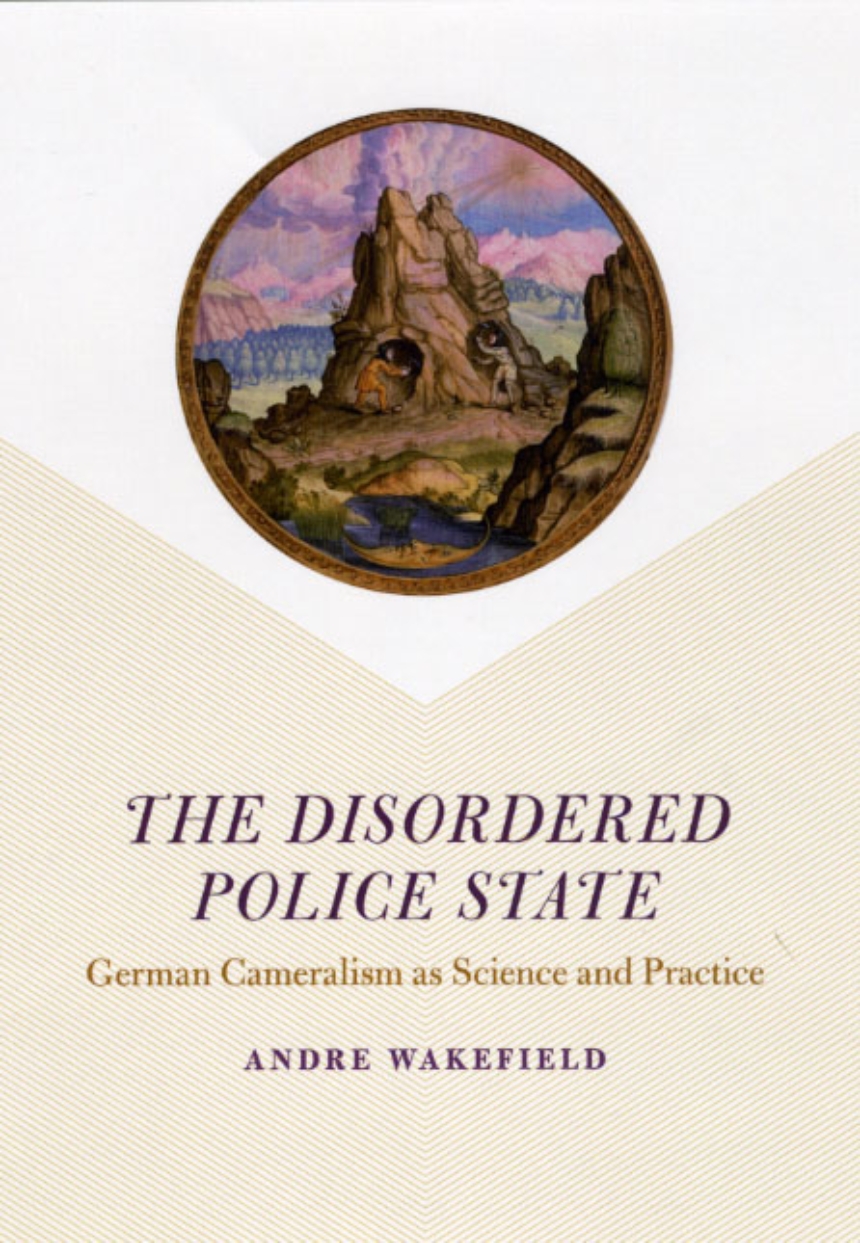The Disordered Police State
German Cameralism as Science and Practice
Probing the relationship between German political economy and everyday fiscal administration, The Disordered Police State focuses on the cameral sciences—a peculiarly German body of knowledge designed to train state officials—and in so doing offers a new vision of science and practice during the seventeenth and eighteenth-centuries. Andre Wakefield shows that the cameral sciences were at once natural, technological, and economic disciplines, but, more important, they also were strategic sciences, designed to procure patronage for their authors and good publicity for the German principalities in which they lived and worked. Cameralism, then, was the public face of the prince’s most secret affairs; as such, it was an essentially dishonest enterprise.
In an entertaining series of case studies on mining, textiles, forestry, and universities, Wakefield portrays cameralists in their own gritty terms. The result is a revolutionary new understanding about how the sciences created and maintained an image of the well-ordered police state in early modern Germany. In raising doubts about the status of these German sciences of the state, Wakefield ultimately questions many of our accepted narratives about science, culture, and society in early modern Europe.
240 pages | 3 halftones, 3 tables | 6 x 9 | © 2009
Biological Sciences: Natural History
Earth Sciences: History of Earth Sciences
Economics and Business: Economics--History
History: European History, General History, History of Ideas, History of Technology
Physical Sciences: History and Philosophy of Physical Sciences
Political Science: Political and Social Theory
Sociology: Social History
Reviews
Table of Contents
Acknowledgments
Chapter 1: Bad Cameralists and Disordered Police States
Chapter 2: Science and Silver for the Kammer
Chapter 3: The Knowledge Factory
Chapter 4: The Cameralist and the Ironworks
Chapter 5: Useless Sciences, Fashionable Sciences
Chapter 6: Conclusion: Don’t Believe Everything You Read
Appendix 1: Average Annual Silver Production in Central Europe, 1545–1800
Appendix 2: Acquisition History of Selected Mining Books in Göttingen
Appendix 3: Friedrich Casimir Medicus’s Unpublished Proposal for a Faculty of State Administration at the University of Ingolstadt
Notes
Bibliography
Index